Turning points: Syria and the Russian diplomacy. Stalingrad syndrome.
“Damascus is the “Stalingrad” of Russian diplomacy. After years of geopolitical withdrawal, Moscow has chosen Syria as a way to revive its image of power in the world. “Not one step back” is the Kremlin’s new strategy, as it was for the Red Army along the banks of the Volga river during World War II. To be more convincing, the Kremlin has simultaneously flexed its muscles by supplying sophisticated […]
Poland, Aftermath. A new Jewish pogrom film.
13 Nov 2012“I am very happy that such a film was made in Poland” veteran director Andrzej Wajda said after the film’s press premiere in Warsaw.
Minister of Culture Bogdan Zdrojewski highlighted that: “I admire the courage in taking up such a difficult theme and analyzing, in a cinematic form, a dramatic episode in Poland’s history”. 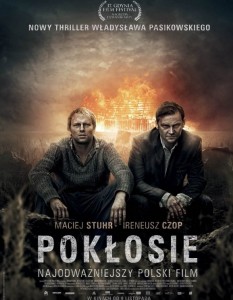
Aftermath is a Polish-Dutch-Slovak-Russian co-production.The cast includes several top Polish actors – Maciej Stuhr, Zbigniew Zamachowski and Jerzy Radziwiłowicz.
Inspired by the 1942 tragedy in which hundreds of Jews were burned alive in a barn, an event long blamed on Nazi Germany, “Poklosie” (“Aftermath”) was directed by Wladyslaw Pasikowski.
“I wanted to tell a story that would interest a broad number of Poles because it is one of the most painful parts of our country’s history,” Pasikowski explained. “We already have a huge number of films on the horrors committed by the Soviets and the Germans, and it’s time to say what bad things we did ourselves.”
The director was inspired by “Neighbours”, a book by Polish-origin US historian Jan Tomasz Gross, which sent shock-waves across Poland after his publication in 2000. The date of the massacre in the village of Jedwabne, some 190 kilometres northeast of Warsaw, has entered Poland’s remembrance calendar.
«Самые длинные газовые трубы. Самые крупные нефтяные сделки. Самый большой флот атомных ледоколов. Россия (точнее, Роснефтегазпроматомфедерация) — энергический чемпион мира. Во всяком случае что касается количества.
А что же разваливающаяся Европа? … 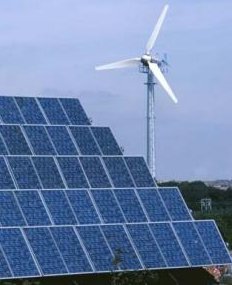
Пока в России идет стремительная централизация энергетических активов в руках госмонополистов, Запад пытается децентрализовать производство энергии. Десятки, уже даже сотни тысяч мелких производителей вместо нескольких крупных концернов. Это можно назвать и демократизацией экономики, но по сути дела происходит техническая и организационная революция…
Россия по сути игнорирует энергетическую революцию остального мира. В России даже по телевизору я не видел того, что вижу всякий раз, когда на самолете приземляюсь в Германии: лес белых ветрогенераторов с огромными винтами. Россия продолжает спать сладким сном нефтегазовой принцессы. Михаила Горбачева здесь не любят, наверное, уже из-за одной-единственной цитаты: «Кто опаздывает, того жизнь накажет».
Статья Штефан Шолль – Московский Комсомолец № 26091 от 13 ноября 2012 г., Stefan Scholl Moskovskij Komsomolets
“This museum is an eloquent declaration of the principles of tolerance toward people and their freedom,” said at the inauguration Israeli President Shimon Peres, 89, who was born in what is now Belarus before his family settled in Palestine in the 1930s. Peres recalled that both his parents had been born in the Russian Empire and everyone at home spoke “Yiddish, Hebrew and Russian”, while his mother had sung him Russian songs. “Here we can see man part with the past and move into the future with hope.” “The museum tells us about two ideologies – communism and Zionism,” he added. 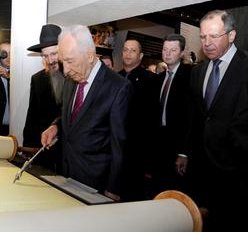
President Vladimir Putin hoped the new museum would become “a place for dialogue and agreement between peoples,” said a statement read at the ceremony by Lavrov. “Any attempt to review the contribution of our country to WWII victory or to deny the Holocaust is not just a cynical lie but a forgetting of history,” Putin’s statement added.
The idea of establishing the museum came from the Federation of Jewish Communities of Russia, which was given the museum building in 2001. Grafts’ renovation and expansion of the 1927 Konstantin Melnikov’s bus depot have transformed the space into the world’s largest Jewish museum. The museum occupies over 8,500 square meters on the Moscow Bakhmetyevsky Garage which was formerly an art gallery run by socialite Dasha Zhukova.
The museum aims to demonstrate Jewish cultural traditions and customs and also show the history of Russia through the prism of one ethnic group, organizers say.
Like its ‘twins’ in New York, Paris and Berlin, the Moscow museum highlights historic Jewish documents, photographs and letters spanning a period of more over two centuries.
Jews were repressed in Tsarist times when starting in the late 18th century they were largely forced to live in an area of the western Russian empire known as the “Pale” where many lived in impoverished towns known as shtetls.
Hitler‘s armies in World War II then occupied most of today’s Belarus, Ukraine as well as western Russia, leaving Soviet Jews exposed to the full brunt of the Nazi killing regime.Heavily targeted during the 1930s purges, Jews suffered even after World War II in the USSR under Stalin’s rule, especially when the purported discovery of a so-called “doctors’ plot” against him unleashed a wave on anti-Semitic hysteria.
Nonetheless Jews have over centuries made a huge contribution to Russian culture, ranging from the writer Sholem Aleichem, the Vitebsk-born artist Marc Chagall or the poet Osip Mandelstam who died in the Stalin camps.
Sources: Ria Novosti, EJR.
Russia and the whole Eastern Europe are observing the last days of the US presidential campaign with great interest. Barack Obama and his challenger, Mitt Romney, represent an opposite approach to the problems of the region.
In 2009 the now outgoing president launched the “reset” policy in order to restore the relationship with the Kremlin after the war in Georgia. During his campaign the candidate of the Republicans has promoted Russia to “number 1 geostrategic foe of the United States”. 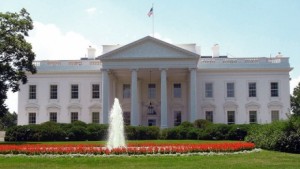
So, the question is: if Romney wins, will Europe come back to the Cold War epoch?
The answer is negative. First of all, even if Russia is considered a “resurgent” power by the experts it has finally lost the status of superpower held by the Soviet Union until 1991. At the moment, it has a more limited weight in the world’s political, economic, and military affairs.
Moscow is no more a hated enemy, as it was for four decades in the 20th century. It is a useful ally in places like Afghanistan, but also a partner, who has often criticized the Western positions on issues like Syria or Iran, and an energy supplier to the US strategic reserves.
In short, Russia is not a threat for Washington or the European Union as it was the Soviet Union. Today’s challenges in the era of the globalization are completely different from those of the past.
Mitt Romney killed two birds with one stone. He used that old fashioned definition, because he simply wanted to attack Obama and its foreign policy, not Russia, that remains – anyway in elderly American people mind – an adversary.
Barack Obama promised the Russians to be more “flexible” after the elections. In 2009 he started a new period in the bilateral relationship, but he did not invite Moscow to join from inside the regional anti-missile Shield in the future controlling Headquarters.
That would represent the decisive recognition of the successful end of the Russian democratic evolution which began in 1991. Former Kremlin’s European satellites, now US allies, are still hesitant to make that historic step. Protests in Moscow and the repression of the dissent will further delay any other openings.
Nonetheless, in these four years there have been positive changes in the US-Russian relationship. Moscow and Washington signed the nuclear arms control treaty in 2010 and this year the White House has supported Russia’s accession to the World Trade Organization.
Vladimir Putin has recently described Barack Obama as “a genuine person” who “really wants to change much for the better”. The Russian leadership, including Dmitry Medvedev, has good personal relationship with him and, if it were able to vote the Kremlin would choose Obama.
But if Romney is elected president it will not be a catastrophe. From the internal political perspective Romney’s victory would guarantee president Putin a useful adversary determined to subvert the state of rule in the Motherland and former USSR. And it would be easier to justify the astronomically expensive 10-year rearmament plan for the armed forces ($770 billion), especially now when the economic crisis is narrowing and social problems are becoming more serious every day.
Giuseppe D’Amato
Украинa, данные национальных экзит-поллов.
28 Oct 2012
|
Название партии |
Национальный exit-poll (ДемИнициативы, КМИС, Разумков) |
Всеукраинский телевизионный (TNS, SOCIS & Интер,ICTV) |
Research & Branding Group |
Рейтинг (5-й канал) |
|
Партия регионов |
28,1% |
30,48% |
31,6% |
27,6% |
|
ВО “Батькивщина” |
24,7% |
23,87% |
23,7% |
23,4% |
|
“УДАР” |
15,1% |
14,67% |
13,2% |
14,3% |
|
Коммунистическая партия Украины |
12,3% |
12,07% |
13% |
12,5% |
|
Всеукраинское Объединение “Свобода” |
11,8% |
11,92% |
11% |
12,5% |
Ucraina, un Paese profondamente diviso al voto.
28 Oct 2012 Il pugile ed il calciatore. Gli “eroi” nazionali, oggi divisi dalle elezioni legislative. Vitaly Klitschko ed Andriy Shevchenko sono i due volti nuovi della politica ucraina, da anni dominata – dopo l’eclisse del “padre” della “rivoluzione arancione” Viktor Jushenko – dallo scontro senza confini tra il presidente Viktor Janukovich e l’ex premier, ora in carcere, Julija Timoshenko. 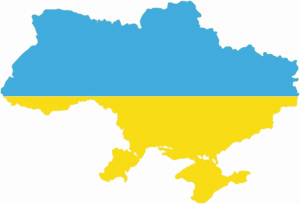
L’ex campione del mondo dei pesi massimi è il leader del partito Udar (ossia, colpo) ed è destinato a diventare il capo dell’opposizione. Se non farà errori probabilmente sarà lui ad essere il candidato da battere alle prossime presidenziali.
L’ex capocannoniere di Milan e Chelsea è, invece, il “numero due” nella formazione “Avanti Ucraina!” di Nataliya Korolevskaya e se la sua compagine supererà la fatidica barriera del 5% per avere una rappresentanza in Parlamento Shevchenko diventerà deputato.
Non è la prima volta che nell’ex Urss le “stelle” dello sport entrano in politica. Oleg Blokhin, bomber indimenticabile della grande Dinamo poi selezionatore della squadra nazionale agli ultimi Europei, è stato per ben due volte parlamentare tra le file dei social-democratici. Pochi giorni fa un altro ex calciatore, Kakha Kalaladze, già compagno di squadra di Shevchenko alla Dinamo Kiev ed al Milan, è stato addirittura nominato ministro dell’Energia e vice-premier nel nuovo governo georgiano.
“Andiamo in Parlamento – ha picchiato duro Klitschko, con un passato da eletto nel Consiglio comunale di Kiev ed un forte impegno nel sociale, – non per cambiare i maiali, ma per togliere loro la mangiatoia!”
Assai più diplomatico Shevchenko, che pare trovarsi non a proprio agio nel clima da rissa imperante da sempre sulla scena politica nazionale. “Vogliamo cambiare il Paese – ha spiegato l’ex bomber -. Il mio compito è costruire le infrastrutture”. Con Berlusconi Shevchenko si telefona, ma per ora non ha chiesto consigli.
I due “eroi” ucraini in passato hanno collaborato per varie iniziative sociali, ma questa volta si sono praticamente ignorati. Anzi, Klitschko ha rifiutato di partecipare ad un incontro pubblico col calciatore per dibattere su giovani e sport.
La ragione della sua decisione è semplice. “Avanti Ucraina!”, formatasi da una costola fuoriuscita da “Patria”, la compagine della Timoshenko, rischia di fare il gioco della formazione di Janukovich, “il partito delle Regioni”, togliendo voti all’opposizione. I sondaggi sono chiarissimi. A fronte di un 24% di indecisi, i “blu” del presidente sono al 23%, Udar al 16, “Patria” al 15 ed i comunisti al 10. Solo l’8,8% degli ucraini crede che queste legislative saranno pulite. Migliaia sono gli osservatori presenti.
Sia Unione europea che Russia guardano alla consultazione con interesse. L’Ucraina è ad un passo dalla firma di uno strategico patto di Associazione con Bruxelles ed è stata invitata allo stesso tempo da Mosca a far parte della nascente Unione doganale, una mini-Urss economica, simile alla CEE. Se il “giro di vite”, imposto al Paese da Janukovich, non è piaciuto agli occidentali Vladimir Putin spera adesso di riportare Kiev nella propria orbita.
L’economia dell’ex repubblica sovietica, però, non va. Un prestito dell’Fmi è bloccato da anni e si rincorrono voci di una prossima svalutazione della grivnia.
Questa volta Janukovich dovrà stare più attento. L’opposizione ha trovato un peso massimo e Klitschko si prepara già ai proverbiali corpo a corpo alla Rada, famosa in tutto il mondo per le più incredibili zuffe tra deputati.
Giuseppe D’Amato
Ukraine, a transparent vote?
27 Oct 2012 The parliamentary election in Ukraine will be “transparent and democratic,” President Victor Yanukovych has said. Following an example from Russia, Ukraine has installed webcams in all polling stations for maximal transparency.
The Organization for Security and Co-operation in Europe (OSCE) has sent 635 election observers to the country – more than ever before. In total, some 3,800 foreign observers monitor the vote. But only 8.8 percent of Ukrainians say the ballot will be fair, according to the Kiev-based Democratic Initiative Fund. 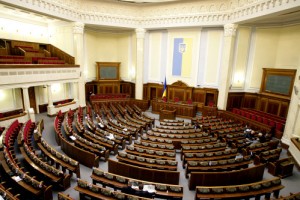
“The significant lack of political pluralism on television is very worrisome and requires immediate action,” EU foreign policy chief Catherine Ashton highlighted in a statement. The elections “will be a litmus test of Ukraine’s democratic credentials.”
The last time that Ukraine had a mixed election system – electing half of its 450 members of parliament in geographic districts, the other half through party lists – was 2002. Ten years ago, the opposition did well on the party lists, but failed to muster a majority after doing poorly in the single-mandate districts. Experts think that history will repeat itself.
The parliamentary vote marks the halfway point in Yanukovych’s first presidential term. Yanukovych’s approval rating is 12.6 percent, down from 37.8 percent in 2010, according to the Razumkov Center for Economic and Political Studies.
Polls suggest his party, the Party of Regions, will preserve its hold on the 450-seat legislature. The Party of Regions has 23.3 percent backing, compared with 16 percent for world boxing champion Vitaly Klitschko’s UDAR, 15.1 percent for Tymoshenko’s Fatherland and 10.1 percent for the Communists.
Control of Parliament will also be a major factor in the higher-stakes presidential contest in 2015. Vitali Klitschko the leader of the opposition UDAR party, seems to be a new future candidate with good chances to win.
Andriy Shevchenko, 36, a former AC Milan striker, runs for Ukraine Forward, which aims to pass parliament’s 5 percent entry barrier. That’s hurting opposition united under jailed ex-Prime Minister Yulia Tymoshenko and improving the prospects of Party of Regions.
The country has become increasingly isolated since Yanukovich’s election in a runoff with Tymoshenko in 2010. And financial analysts say that the country’s economy is in trouble again as a result of flagging demand in Europe, particularly for steel, Ukraine’s main export.
The Georgian parliament approved the new government of Georgia, led by Prime Minister Bidzina Ivanishvili.
This is its composition:
Defense Minister and Deputy Prime Minister – Irakli Alasania
Energy Minister and Deputy Prime Minister Kakha Kaladze 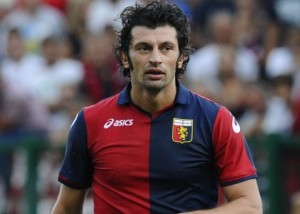
Minister of Finance – Nodar Khaduri
Interior Minister – Irakli Garibashvili
Minister of Justice – Thea Tsulukiani
Minister of Foreign Affairs – Maya Panjikidze
Minister for Reintegration – Paata Zakareishvili
Minister for Infrastructure and Regional Government – David Narmania
Economy Minister – Giorgi Kvirikashvili
Minister of Labour, Health and Social Affairs – David Sergeenko
Minister of Environment – Khatuna Gogaladze
Minister of Education and Science – Giorgi Margvelashvili
Minister of Refugees and Accommodation – David Darakhvelidze
Minister of Youth and Sports – Levan Kipiani
Minister of Penitentiary – Sozar Subari
Culture Minister – Guram Odisharia
Agriculture Minister – David Kirvalidze
State Minister for Diaspora Affairs – Kote Surguladze
State Minister for European Integration – Alexi Petriashvili.
Minister for Employment – Kakha Sakandelidze
Talks about constitutional changes have already started in the new parliament. “In order to avoid one party government, it is already necessary to make changes in the relevant part of the constitution and create applicable government model. However, we will make these changes after public discussions. We will try hard to take into account all sensible proposals and interests. The constitution will establish the model that will guarantee stability of the state,” said Prime Minister Ivanishvili. The new Constitution will give political opposition mechanisms for controlling government activities.
Under current legislation the change in the Constitution can be made if 2/3 of lawmakers (100 MPs) vote for it. Ruling Georgian Dream currently has 85 seats, while the opposition United national Movement – 65 mandates.
The main goal of the new government will be de-occupation of Georgia. “At the same time, we will look for the ways of talking to Abkhazians and Ossetians. With the support of international society we will manage to start negotiations with Russia about economic and cultural affairs,” said Ivanishvili. The territorial integrity of the country is vital for the government to be effective. Important steps will be taken towards integration with the EU and NATO.
«Холодные отношения с Западом, продолжительная ссора с Японией, потеря почти всех союзников в арабском мире. Остаются, конечно, Иран и Китай, но с партнерами из Поднебесной уже долгие годы невозможно заключить ключевого для российской экономики договора о приемлемых тарифах на газ… 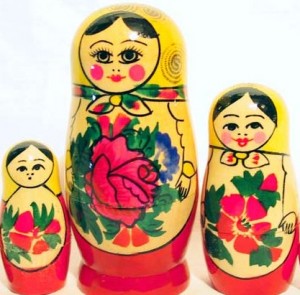
На традиционный вопрос о том, куда идет Россия, в эти сложные месяцы получен однозначный ответ: к самоизоляции…
Даже из Европы слышно, как нарастает громкость традиционной для России фразы: «Мы слишком большие, поэтому нас никто не любит!». …
не верьте пропагандистским бредням. Людей, которые ведут себя достойно, любят повсюду. Предрассудки и глупые клише в современном мире долго не живут. Историям о том, что зимой медведи гуляют по московским улицам, давно никто не верит. Но заморозки в отношениях с Россией, к сожалению, ощущаются. И очень не хочется думать, что нас снова ждет политическая зима».
Статья – Джузеппе Д’Амато Московский Комсомолец № 26074 от 23 октября 2012 г. Giuseppe D’Amato Moskovskij Komsomolets.
Dopo anni il grande “Progetto” sta andando in porto. Il Cremlino affianca alla monopolista del gas Gazprom il nascente gigante del petrolio Rosneft. La Russia si afferma così sempre più come esportatrice di materie prime. Ma non solo. L’obiettivo primario di riuscire a condizionare in qualche modo i prezzi a livello internazionale potrebbe avvicinarsi.
Da un paio di settimane il mondo della finanza e quello dell’energia sono letteralmente in subbuglio per la seconda maggiore fusione di compagnie petrolifere nella storia dopo quella del 1999 tra la Exxon e la Mobil. 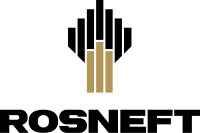
Il colosso petrolifero Bp ha appena firmato l’accordo di massima con Rosneft per la vendita del 50% della joint venture TNK-BP. In cambio i britannici otterranno il 19,75% del capitale del neogigante russo e 12,3 miliardi di dollari in contanti. In futuro potranno contare su due posti (su un totale di nove) nel consiglio di amministrazione della Rosneft.
In parole povere la Bp esce da una società mista (la TNK-BP) con dei litigiosi miliardari russi, con cui i rapporti erano stati tesissimi, ed acquisisce quote in una società semi-pubblica – dove il Cremlino farà il bello ed il cattivo tempo -, ma con cui sono previsti importanti progetti per lo sfruttamento delle risorse dell’Artico.
La Rosneft chiaramente compra anche la quota di TNK-BP in mano ai miliardari russi, diventando la maggiore compagnia mondiale quotata per l’estrazione di petrolio (oltre 4 milioni di barili al giorno). L’intera Arabia Saudita ne produce circa 10.
Dopo il crollo dell’Urss nel 1991 il governo federale era riuscito a mantenere solo il controllo del mercato del gas, poiché troppo condizionato dalle poche condotte esistenti verso occidente. Quello del petrolio era finito in mani private o addirittura straniere.
La triste vicenda con al centro l’ex oligarca Michail Khodorkovskij, proprietario della maggiore compagnia privata del Paese – la Yukos -, ha riaperto i giochi. Dopo che il magnate è stato incarcerato in Siberia e la sua società smembrata, la Rosneft ne ha incamerato i bocconi più ghiotti a partire dal 2004.
Il Cremlino, in sintesi, riesce a riportare sotto il proprio controllo un’ampia fetta del mercato del petrolio nazionale. La “mente” dell’operazione è stata Vladimir Putin, ma il braccio operante è sicuramente il potentissimo Igor Sechin, anch’egli con un passato nel Kgb.
Tutti gli attori in causa alla fine paiono guadagnarci qualcosa, ma chissà se i compratori del petrolio russo saranno contenti. E’ difficile che lo siano, considerando gli enormi volumi che la Rosneft sarà in grado di gestire. Soltanto i prezzi alti dell’“oro nero” potranno permettere sia di garantire il bilancio statale russo (oggi il 55-60% delle entrate totali viene dal settore energia) sia di poter far fronte alle spese stratosferiche di estrazione nelle zone più remote del pianeta.
Alcuni analisti, però, buttano acqua sull’entusiasmo. I costi della fusione sono altissimi e negli ultimi anni la Rosneft non ha registrato profitti come la TNK-BP.
Welcome
We are a group of long experienced European journalists and intellectuals interested in international politics and culture. We would like to exchange our opinion on new Europe and Russia.
Categories
- Breaking News (11)
- CIS (129)
- Climate (2)
- Energy&Economy (115)
- EU Eastern Dimension (85)
- Euro 2012 – Sochi 2014 – World Cup 2018, Sport (43)
- Euro-Integration (135)
- History Culture (198)
- International Policy (261)
- Military (74)
- Interviews (18)
- Italy – Italia – Suisse (47)
- Odd Enough (10)
- Poland and Baltic States (126)
- Religion (31)
- Russia (421)
- Survey (4)
- Turning points (4)
- Ukraine (176)
- Российские страницы (113)
Archives
- November 2020
- October 2020
- September 2020
- August 2020
- July 2020
- May 2020
- April 2020
- March 2020
- January 2020
- December 2019
- November 2019
- October 2019
- September 2019
- August 2019
- July 2019
- June 2019
- May 2019
- April 2019
- March 2019
- February 2019
- December 2018
- November 2018
- October 2018
- September 2018
- August 2018
- July 2018
- June 2018
- May 2018
- April 2018
- March 2018
- February 2018
- January 2018
- December 2017
- November 2017
- October 2017
- September 2017
- August 2017
- July 2017
- May 2017
- March 2017
- January 2017
- December 2016
- November 2016
- October 2016
- September 2016
- July 2016
- June 2016
- May 2016
- April 2016
- February 2016
- January 2016
- November 2015
- October 2015
- September 2015
- June 2015
- April 2015
- March 2015
- February 2015
- January 2015
- December 2014
- November 2014
- October 2014
- September 2014
- August 2014
- July 2014
- June 2014
- May 2014
- April 2014
- March 2014
- February 2014
- January 2014
- December 2013
- November 2013
- October 2013
- September 2013
- August 2013
- July 2013
- June 2013
- May 2013
- April 2013
- March 2013
- February 2013
- January 2013
- December 2012
- November 2012
- October 2012
- September 2012
- August 2012
- July 2012
- June 2012
- May 2012
- April 2012
- March 2012
- February 2012
- January 2012
- December 2011
- November 2011
- October 2011
- September 2011
- August 2011
- July 2011
- June 2011
- May 2011
- April 2011
- March 2011
- February 2011
- January 2011
- December 2010
- November 2010
- October 2010
- September 2010
- August 2010
- July 2010
- June 2010
- May 2010
- April 2010
- March 2010
- February 2010
- January 2010
- December 2009
- November 2009
- October 2009
- September 2009
- August 2009
Our books




